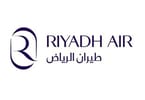Ijabọ tuntun kan lati Igbimọ Iṣowo Innovation Innovation ti akole “Lati Awọn ẹnu-ọna si Sentinels: Bii awọn papa ọkọ ofurufu ṣe le lo wiwa lati ṣakoso ikolu,” n tan ina lori ipa ti Toronto Pearson ni ni ọjọ iwaju ti idahun ajakaye-arun.
Throughout the COVID-19 pandemic, travel restrictions were a prominent measure used by governments to curb the spread of the virus. Two and a half years later, infectious disease experts, data specialists and others agree that there are some less impactful approaches that can be used and still deliver the needed protections.
The report highlights the role global airports are playing in early detection of new variants through Artificial Intelligence-driven early warnings, wastewater surveillance and more. Airports are no longer just gateways for travel but are valuable sources of vast amounts of data for public health policymakers to help make decisions. Toronto Pearson is embracing its position as Canada’s busiest airport to lead the way with innovations that can help shape the next stages of the pandemic.
Two wastewater surveillance programs have been initiated at the airport. First in January 2022, with the Public Health Agency of Canada and Public Health Ontario, and now through a pilot project funded by the National Research Council of Canada and the Industrial Research Assistance Program.
This pilot project collects sewage samples from Terminals 1 and 3, as well as from a triturator reservoir that contains the combined wastewater of all planes that land at Pearson. Access to this unique sample of wastewater can help experts look for new strains of COVID-19, identifying it earlier than with traditional PCR testing.
Pearson is also supporting efforts to curb the spread of COVID-19 through other innovative technology such as Spotlight-19© from ISBRG, a Toronto-based data analytics company. The device — currently under Health Canada review —is designed to detect COVID-19 infection using a special light that scans a fingertip and takes less than a minute to perform. Should testing be brought back in as part of pandemic response measures, this would be a non-invasive and inexpensive way to screen large numbers of people at airports and other large venues.
To mark the release of the report, a virtual panel discussion of experts will be held today between 12 p.m. and 1 p.m. The discussion is open to the public.






















